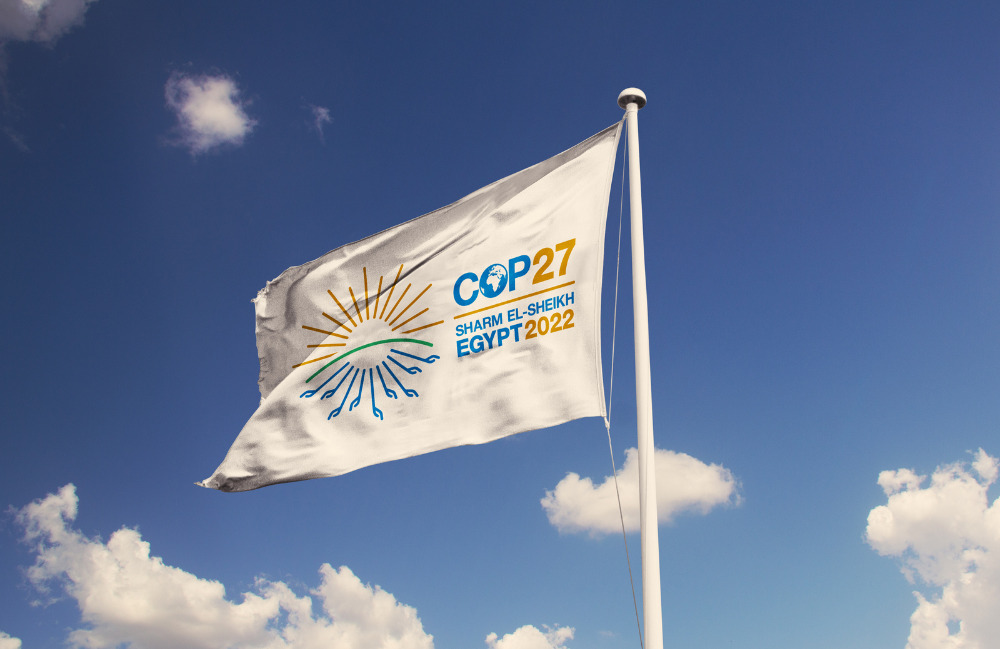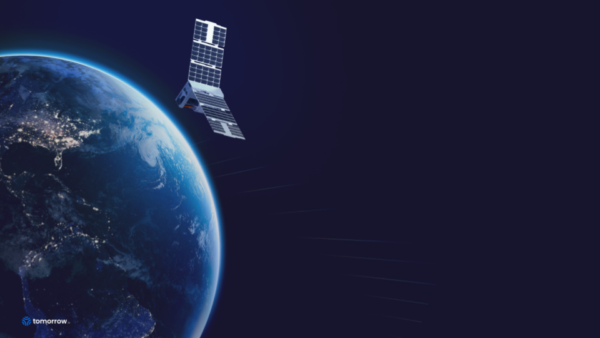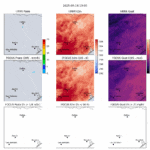Each year, the UN holds its Conference of the Parties (COP) meeting to review global progress in implementing climate directives and discuss new commitments.
This year’s conference, COP27, was held in Sharm El-Sheikh, Egypt and brought together both public and private representatives from over 190 countries, including Tomorrow.io.
While past COPs have focused largely on mitigating the impact of climate change, this year’s message was clear:
The consequences of climate change are here. While reducing our collective impact is crucial, we must prioritize climate adaptation and supportive tactics more than ever before. This approach also requires advanced warning of extreme weather events, which are becoming more volatile alongside ever-worsening climate change.
Backed by our weather intelligence technology and upcoming space mission, the Tomorrow.io companies championed these imperatives throughout COP27. Here’s a recap of key takeaways, announcements, and new initiatives aimed at tackling adaptation on the global scale:
Climate Adaptation is a Must
There’s no shying away from it—the impact of climate change is devastating. COP27 reconfirmed the Paris Agreement’s commitment to limit global warming to 1.5 degrees Celsius.
But the conference also shone a light on climate adaptation at the highest level:
President Biden, for example, announced the U.S. would double its pledge to the Adaptation Fund and announced over $150 million to accelerate the President’s Emergency Plan for Adaptation and Resilience (PREPARE).
But adjusting to the impact of climate change involves more than just direct investment. Led by technology, successful climate adaptation requires innovative ways of managing the reality of climate change by building more resilient infrastructure, altering agricultural practices, adjusting how businesses operate, and more.
Our CEO Shimon Elkabetz spoke about the key part Tomorrow.io’s weather intelligence platform plays in advancing climate adaptation at scale as part of Israel’s COP27 delegation. Watch the full presentation here:
The Resilience of Our Cities and Countries Depends on Advanced Early Warnings
Climate change is making extreme weather events more frequent and volatile. In fact, billion-dollar weather disasters now happen every 18 days.
Every street, town, village, city, state, country, government, and continent is struggling to rapidly adapt to this growing impact. But we currently lack “early enough warning” via actionable weather forecasting to protect communities in advance of extreme events.
Alongside climate adaptation, this topic also took center stage at COP27. The WMO pledged a $3.1 billion investment to cover enhanced disaster risk knowledge, observations, preparedness, and more. But these resources hinge on cutting-edge technology.
That’s where Tomorrow.io’s latest innovation—Global Early Warning Systems—comes in:
Backed by data from our upcoming satellite constellation, this product helps governments better prepare for, mitigate, and adapt to the ever-growing number of climate-related challenges leaders face today.
Our Co-Founder and Chief Strategy Officer Rei Goffer explained their transformative impact:
“No matter where you look, it’s clear that we’re losing the fight against extreme weather events, and our global early warning systems are here to level the playing field. As the world continues to set new records for extreme weather events, costing people’s well-being and trillions of dollars in economic damages, governments need to urgently up their game when it comes to preparation, mitigation and climate adaptation.”
Democratizing Weather Intelligence is a Global Responsibility
Five billion people currently live outside of weather radar coverage—and most are in Africa and Asia. Their governments, businesses, and citizens are on the frontlines of climate change.
But without radar coverage (let alone actionable forecasts), they’re unarmed against the devastating impact of extreme weather on their food security, household income, and fundamental well-being. At COP27, ministers from developing nations called for a fund to help their communities recover from the damage caused by climate disasters.
This is where the Tomorrow.io companies are truly leading the way. Our first-of-its-kind weather satellite constellation will improve our data refresh rate from space from 3 days to 3 hours, along with providing radar coverage over oceans and every point on earth.
This world-changing innovation will truly level the playing field for every human, business, and government, particularly in developing regions like Africa.
Its impact sparked two major announcements at COP27:
- Tomorrow.io’s partnership with Microsoft, which combines Tomorrow.io’s weather intelligence technology with the Microsoft Cloud to bring next-gen weather tech to over 100 countries, starting with Africa
- The Tomorrow.io companies’ joint investment with AIM for Climate of $100M to bring climate adaptation to 20M African farmers
TomorrowNow.org’s Executive Director Georgina Campbell Flatter also spoke alongside the U.S. Secretary of Agriculture Tom Vilsack on the topic of “Accelerating AIM4C Investments for Smallholder Agriculture.” Watch her full segment here:
COP27 may be over, but the road to true climate adaptation and weather democratization has just begun. Join us in leading the way.







